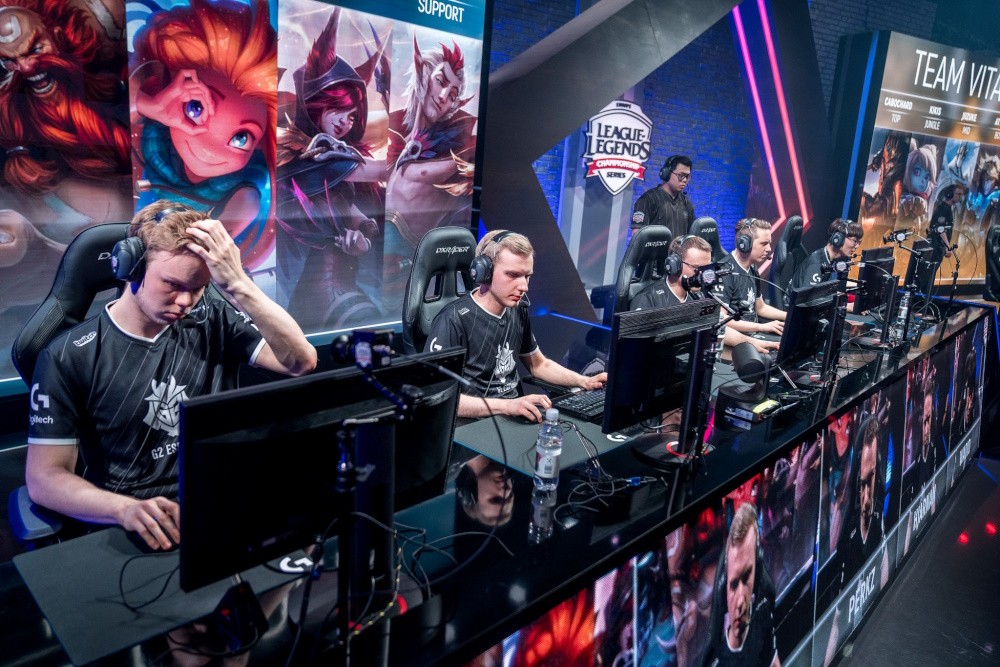The Challenges and Opportunities of Cryptocurrency in Esports

In the ever-evolving world of technology and finance, cryptocurrency has emerged as a powerful force, disrupting traditional financial systems and creating new opportunities across various industries. Esports, the rapidly growing arena of competitive video gaming, has not been immune to the influence of digital currencies. One platform that is at the forefront of this convergence is Instant Advantage Ai, an online trading platform. In this article, we’ll explore the challenges and opportunities presented by cryptocurrency in esports.
The Rise of Cryptocurrency in Esports
Esports, as an industry, is no stranger to innovation. The adoption of blockchain technology and cryptocurrencies in this space has opened up exciting avenues for players, teams, and fans alike. Here are some key factors contributing to the integration of cryptocurrency in esports.
- Financial Inclusivity: Cryptocurrencies, like Bitcoin and Ethereum, offer a level of financial inclusivity previously unseen in esports. Players from different parts of the world can now access their earnings more easily without being constrained by traditional banking systems.
- Smart Contracts: Smart contracts on blockchain networks enable players and teams to create transparent and immutable agreements. This is especially valuable in an industry where contracts and sponsorships can be complex, ensuring that all parties fulfill their obligations.
- Fan Engagement: Cryptocurrencies have opened up new opportunities for fan engagement and loyalty. Fans can participate in token-based voting, ownership of in-game assets, and even crowdfunding their favorite players or teams.
Challenges in Integrating Cryptocurrency in Esports
While the adoption of cryptocurrency in esports holds great promise, it is not without its challenges. The industry faces several hurdles in achieving a seamless integration of digital currencies.
- Regulatory Uncertainty: One of the primary challenges in the cryptocurrency space is regulatory uncertainty. Governments worldwide are still working to establish comprehensive regulations for cryptocurrencies, leading to a degree of unpredictability in the esports industry’s use of digital currencies.
- Volatility: Cryptocurrencies are known for their price volatility. This presents a significant risk for players and teams who may see their earnings fluctuate drastically over a short period. Stablecoins and hedging strategies are potential solutions, but they are not foolproof.
- Scams and Fraud: The nascent nature of cryptocurrency has made it susceptible to scams and fraudulent activities. Players and teams need to exercise caution when dealing with digital assets, as there have been instances of fraudulent token sales and investment schemes.
Opportunities for Players and Teams
Despite the challenges, cryptocurrency in esports offers exciting opportunities for players and teams to further their careers and financial prospects.
- Tokenized Contracts: By tokenizing player contracts, teams can offer players the ability to earn bonuses through token performance. This aligns the interests of players and teams, potentially leading to improved performance.
- Fan Engagement: Esports teams can use cryptocurrency to enhance fan engagement. Token holders can gain voting rights for key decisions, such as jersey designs or team rosters. This fosters a sense of community and belonging among fans.
- Global Talent Pool: Cryptocurrency enables teams to recruit talent from around the world. Players can receive their earnings in the form of cryptocurrency, eliminating the need for expensive cross-border financial transactions.
The Future of Cryptocurrency in Esports
The integration of cryptocurrency in esports is still in its infancy, but the future holds great promise. As the industry continues to mature, several trends are likely to shape its evolution.
- Tokenization of In-Game Assets: NFTs (Non-Fungible Tokens) have already made a significant impact in the gaming industry. Esports is likely to embrace NFTs for in-game items, creating new revenue streams for players and teams.
- Widespread Adoption: As regulatory clarity improves, more esports organizations and players are likely to embrace cryptocurrency. This will lead to greater adoption and integration of digital currencies in player contracts and sponsorship deals.
- Emerging Esports-Specific Tokens: We may witness the rise of esports-specific tokens that are tailored to the needs and preferences of the gaming community. These tokens could power in-game economies, fan engagement initiatives, and more.
The Future of Cryptocurrency in Esports
The integration of cryptocurrency in esports is still in its infancy, but the future holds great promise. As the industry continues to mature, several trends are likely to shape its evolution.
- Tokenization of In-Game Assets: NFTs (Non-Fungible Tokens) have already made a significant impact in the gaming industry. Esports is likely to embrace NFTs for in-game items, creating new revenue streams for players and teams.
- Widespread Adoption: As regulatory clarity improves, more esports organizations and players are likely to embrace cryptocurrency. This will lead to greater adoption and integration of digital currencies in player contracts and sponsorship deals.
- Emerging Esports-Specific Tokens: We may witness the rise of esports-specific tokens that are tailored to the needs and preferences of the gaming community. These tokens could power in-game economies, fan engagement initiatives, and more.
Conclusion
In conclusion, the integration of cryptocurrency in esports brings with it a blend of challenges and opportunities. While there are hurdles to overcome, the potential for financial inclusivity, fan engagement, and improved contracts is enticing. Platforms like Crypto Loophole are making significant contributions to the space by offering secure, user-friendly services. The future of cryptocurrency in esports is bright, and as the industry continues to evolve, players, teams, and fans can look forward to exciting developments in the world of competitive gaming and digital finance.










